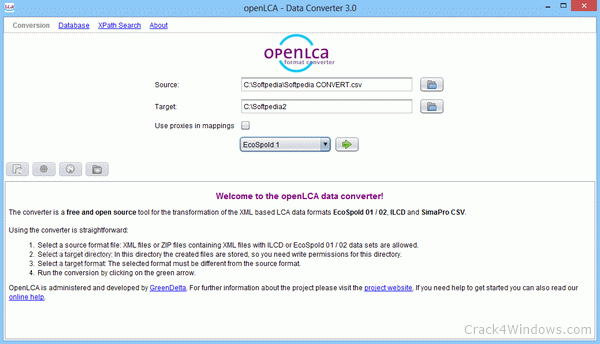

plus many specific terms like X in motion picturesįIAF International Index to Film Periodicals.One thing to watch out for: each database has its own controlled vocabulary for subjects. That will ensure the search results are really about that subject and don't just happen to mention those words in passing somehow. If one or more of them look like matches for your topic, re-run your search using those terms-and be sure to specify you want those terms in the subject field. Whenever you find a good article in a database, check out the subject headings. For example, Academic Search Complete uses the subject term "motion pictures," even if the article uses the words "films," "movies," or "cinema." The advantage of controlled subject terms is that they're standardized terms which will be assigned to all appropriate content no matter what terminology (or even language) is used by the author.
#Search openlca data professional
At their simplest they may be tags chosen by the authors, but most databases use a controlled vocabulary assigned by professional catalogers Subject headings are a form of descriptive metadata.

Instead they have metadata, data about the data.
#Search openlca data full
Some databases do not actually contain the full text of articles. Example of search fields available in Academic Search Complete.


 0 kommentar(er)
0 kommentar(er)
